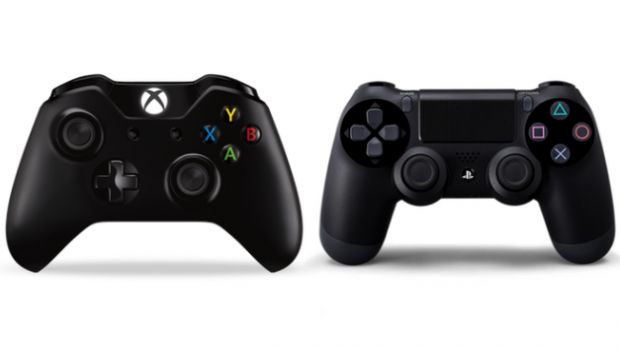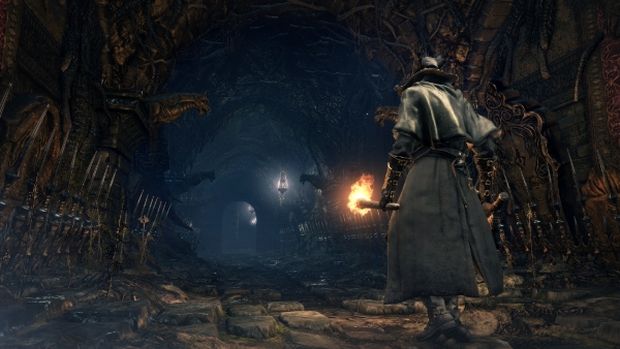
It is often said that in the modern gaming climate, first party software does not count for much. This is patently a lie- first party software has a very important place in the gaming industry even today, whether from a development standpoint, or from a market dynamics one. From a development standpoint, first party software is viewed as a vote of confidence by the platform holder in their own system- if Sony won’t support the Vita themselves, Microsoft the Kinect, or Nintendo the Wii U, why should third parties then bother? And indeed, all three of these systems saw a mass exodus of third party support, precisely because of this lack of first party investment.
That’s not all, either- in the modern era, with game development becoming increasingly homogenized, so all games can target and release on multiple consoles, exclusives are necessary to differentiate your system from all others. In the past, exclusives were a natural outcome of game development and how it worked, with each game’s pipeline being proprietary and moulded to the system it was being made for, but the present tendency towards platform agnostic middleware and multiplatform releases has ensured that exclusive software largely does not come from third parties anymore- not unless they are paid, and even then, the software may never be fully exclusive (Street Fighter V, Titanfall), or it may not be exclusive for long (Rise of the Tomb Raider, Ryse: Son of Rome, Dead Rising 3).
The bulk of exclusives, in this scenario, must come from the platform holders themselves- first party software, so to speak. First party software is exceedingly important- just ask Nintendo, who sell millions of units of their own systems on nothing but the promise of their own games. Just ask Sony, who managed to pull back from the disastrous PS3 launch by doubling down on in house first party games, after major third party exclusives also jumped ship to Xbox 360. Just ask Microsoft, who have now realized the importance of a diverse first party portfolio, and will be investing more in first party IP and games going forward.
"With game consoles and their software becoming increasingly homogenized, first party exclusives are becoming more important than ever before."
This importance of first party software is exactly why Sony and Microsoft’s strategies with regards to it this generation are so fascinating. Last generation, Microsoft sold the Xbox 360 by securing timed or full exclusive deals for third party multiplatform games or additional content, as well achieving brand synonymity with some of the biggest third party games, such as Call of Duty. Sony, meanwhile, fighting from a position of weakness, retaliated by creating actual exclusives by investing in first party studios and second party partnerships- games such as Uncharted, Resistance, inFamous, Ratchet and Clank, Gran Turismo, LittleBigPlanet, Heavy Rain, and others all came from that commitment.
This generation, however, we are beginning to see, at least at first glance, a reversal. As mentioned above, Microsoft is doubling down on first party games, and we are already seeing the benefits of that. Microsoft finally seems to have broken the Xbox One out of the traditional Halo/Gears/Forza cycle, and it appears as though it will be bringing a whole host of varied first party exclusives on the system. Just in this calendar year, we have had games such as Re:Core (a new third person action adventure game from the makers of Mega Man and Metroid Prime), Quantum Break (the newest game by acclaimed studio Remedy), Scalebound (a new action RPG from Platinum Games), Sea of Thieves (a new game from Rare, and the first non Kinect/non Avatars project from them in a while), Crackdown 3 (the return of Microsoft’s open world action adventure franchise, and one that looks as though it will finally realize the potential of the series), in addition to old franchise stalwarts such as Forza Motorsport 6, Killer Instinct, Halo 5: Guardians, Gears of War 4, Fable Legends, and Halo Wars 2.
It’s an extremely varied lineup, running a gamut of new and old franchises, from studios western and Japanese, and Microsoft has promised that there will be more to come from their first party developers- that controversial Tomb Raider deal from Microsoft may be the last of its kind for a while now.
"Hopefully, the Rise of the Tomb Raider deal was the last of its kind we will see for a while, and Microsoft will invest more in first party exclusives going forwards instead."
On the other hand, Sony have, by their own admission, been focusing more on third party games rather than first party software. So far this generation, they have tried to secure games that are timed exclusive to PS4, games that are ‘console exclusive’ to PS4, and exclusive content for multiplatform games for PS4 versions, such as in Destiny- if this all sounds familiar to you, it’s because this is very uncomfortably reminiscent of Microsoft’s strategy with the Xbox 360, a strategy that ultimately saw exclusives for the Xbox 360 dry up in the later years of that console’s lifespan. The threat of Sony derailing from its vision has been discussed on GamingBolt before, but that’s a larger issue, not just confined to first party software. The question here is, as far as first party software goes, is there any substance to these rumors, or is this just smoke without a fire?
For starters, we can look at Sony’s performance with the PlayStation 4 so far, almost two years into the system’s life- they have thus far released nine retail games for the platform. These are Knack, Killzone: Shadow Fall, inFamous: Second Son, MLB: The Show, The Last of Us Remastered, DriveClub, LittleBigPlanet 3, The Order 1886, Bloodborne, and a few remasters. Apart from Bloodborne, it’s a pretty average slate, but let’s be honest here- it’s not really any better or worse than Microsoft’s showing on the Xbox One so far. In fact, if one were to remove games from external partners on Xbox One, that ultimately came to the PC, such as Ryse or Dead Rising 3, one might even argue that Sony’s performance so far is better.
Going ahead, Sony has Horizon, The Last Guardian, Uncharted 4: A Thief’s End, Ratchet and Clank and Dreams. It’s a nice mix of of old franchises and new, representing a diverse variety of games, though in terms of sheer numbers, it’s a lower number than Microsoft’s announced slate so far.
"Bloodborne is really the lone shining spot in Sony’s otherwise dismal first party output for the PS4 so far."
One might be tempted to jump the gun here- this right here is proof that Sony is investing less in first party games going forward than Microsoft, right? Whereas my natural inclination here might be to agree, in the interests of fairness, it is very important to remember one thing- Sony as a major first party is far bigger than Microsoft or even Nintendo. It has far more major studios than Microsoft does, and a lot of them simply have not made any announcements yet. For instance, Sony Santa Monica is definitely working on a new game, and yet it has not been officially announced, so we’re not counting it in the tallies. Similarly, we know a new Gravity Rush game has been announced, and because we also know that Sony is not supporting the Vita with any more AAA software, we know by the process of elimination that it is coming to PS4- but again, a lack of an actual official announcement here means that we can’t go ahead and count it.
Other studios, such as Sony Bend, Sucker Punch, and Guerrilla Cambridge are working on something- we know this because of the job listings for both studios that we have managed to peak at. We also know that Sony’s second party developers, such as Quantic Dream, are hard at work on something for the PS4.
On the whole, then, what I am trying to say is that allegations of Sony de-emphasizing its first party may be a little pre-mature. While it is hard to deny that Sony’s performance thus far has been lacking, and it is equally hard to deny that Sony, by their own admission, have been working more towards third party exclusives (timed or otherwise) right now than anything else, it is also still very early in this console cycle- remember, the PS3 and Xbox 360 lasted for ten years each. And also remember, the PS3’s own first party showing for its first two years was not particularly impressive (though it was still better than the PS4’s dismal performance, admittedly).
"Studios such as Sony Bend are still working on unannounced projects, meaning there is more to come from Sony’s first party than we know of."
We still do not have all the pieces in place, as far as Sony’s first party goes- there are so many major studios and games that are known about, but unannounced. Major studios, and games from critically acclaimed franchises, that will all but assure some quality exclusives for the PS4 going forward.
Is the Xbox One winning the first party game war? No, but it is not losing it any more either. If there is one thing that this editorial should make abundantly clear, it is that Microsoft has grown serious about its own first party investment- we already have a great start, with all the games announced this year, and hopefully, this continues going forward as well, and more new exclusives are announced for the platform.
Is the PS4 winning, then? Also not, but allegations of it losing the war are also unfounded- it has simply too much in the works for anyone to be able to claim that Microsoft’s first party offerings are objectively more or better, with a straight face.
What is happening, then, is that both companies are working hard to differentiate their consoles from each other, by securing more and more first party content that will be high quality, and remain exclusive to their system, in an effort to attract more buyers. In this scenario, the only entity that can truly be said to be winning the first party games war is us, the consumers- we get more excellent games out of it, in addition to all the third party games we would already have gotten anyway (games which hopefully won’t be arbitrarily locked to one platform any more, going forward).
The views expressed in this article are those of the author and do not necessarily represent the views of, and should not be attributed to, GamingBolt as an organization.


















